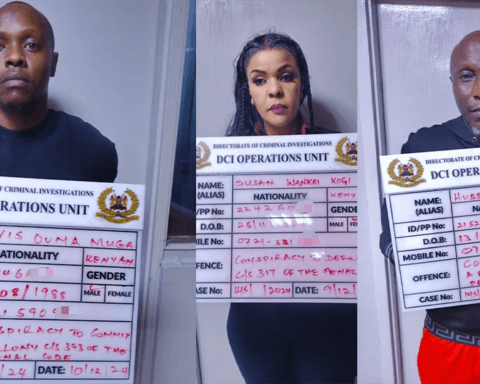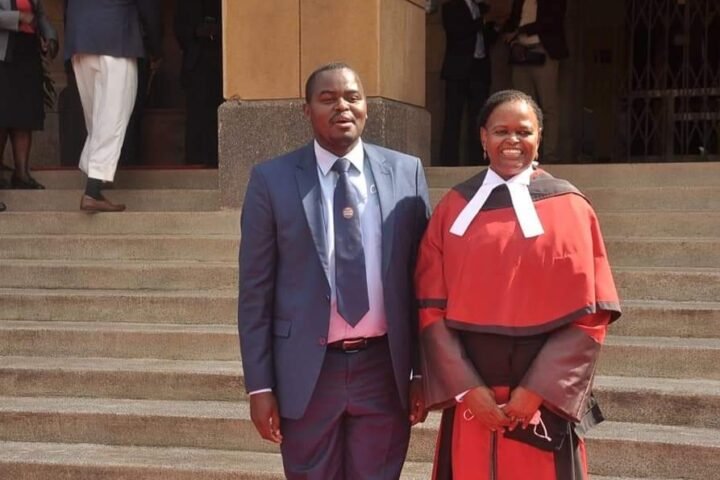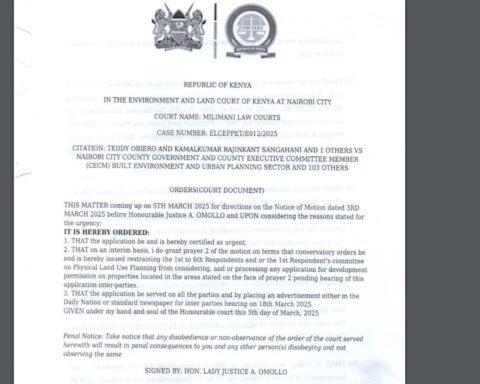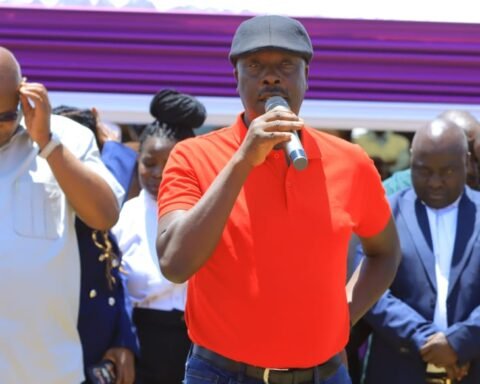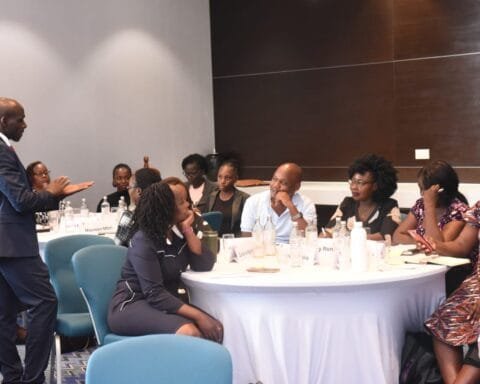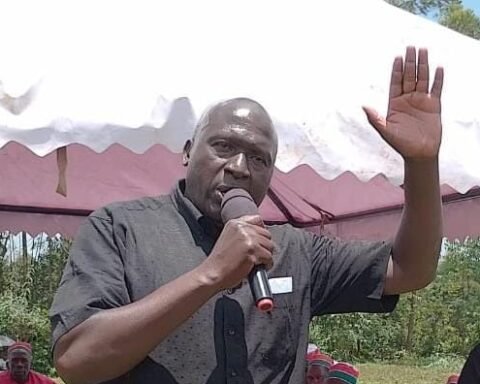BBC Africa is currently facing significant backlash following a controversial story published on February 17, which allegedly defamed John Chebochok, a Kenyan man contracted by Finlay Africa for mechanization work. The story claimed that Chebochok had been sexually molesting residents in exchange for jobs—a claim that has since been proven false. This incident underscores the critical importance of accurate and responsible journalism.
The Incident
The February 17 story by BBC Africa painted a damning picture of John Chebochok, accusing him of engaging in sexual misconduct with residents in exchange for job opportunities. These allegations have caused considerable damage to Chebochok’s reputation and personal life.
John Chebochok’s Profile
His Career at Finlay Africa
John Chebochok had a long and distinguished career at Finlay Africa, spanning 28 years. He started as an Assistant Manager and worked his way up to become a Senior Manager. In 2017, he retired to pursue a political career, vying for the Kipkelion Parliamentary seat.
Political Aspirations and Community Involvement
After retiring, Chebochok remained active in his community and was later recalled by Finlay Africa due to his exceptional skills in mechanization. His commitment to his work and community has been well recognized.
The Defamatory Claims
Allegations of Sexual Molestation
The BBC story alleged that Chebochok had been involved in sexually molesting residents to secure jobs for them. These allegations were serious and damaging, impacting Chebochok’s personal and professional life.
Impact on Chebochok
The false claims led to significant harassment, with Chebochok receiving threatening messages and being vilified in his community. The stress and reputational damage caused by these allegations have been profound.
Danstan Omari’s Response
Demand Letter to BBC Africa
Vibrant city lawyer Danstan Omari stepped in to defend Chebochok, issuing a demand letter to BBC Africa. Omari criticized the network for failing to give Chebochok an opportunity to respond to the allegations before broadcasting the story.
Key Points Made by Omari
Omari highlighted that Chebochok’s distinguished career at Finlay Africa and his reappointment due to his expertise were overlooked. He also pointed out that none of the alleged victims had filed complaints with the police, unlike Chebochok, who had reported harassment.
Chebochok’s Work History
Career Progression at Finlay Africa
Chebochok’s career at Finlay Africa was marked by steady progression and numerous achievements. He was promoted from Assistant Manager to Estate Manager, eventually becoming a Senior Manager.
Role in Mechanization Post-Retirement
Even after retiring, Chebochok’s expertise was in high demand. He was recalled to help with mechanization projects, demonstrating his invaluable skills and dedication.
Issues with the BBC Story
Lack of Chebochok’s Input
One of the major flaws in the BBC story was the failure to include Chebochok’s side of the story. Omari emphasized that Chebochok was not given an opportunity to respond to the allegations, which is a fundamental aspect of fair reporting.
Absence of Police Complaints
Omari also pointed out that none of the alleged victims had made official complaints to the police or any investigative authority. This further undermines the credibility of the allegations made in the BBC story.
Harassment and Legal Actions
Harassment Chebochok Faced After the Story
Following the publication of the story, Chebochok experienced significant harassment. He received threatening messages via SMS and WhatsApp, adding to the distress caused by the false allegations.
Legal Actions Taken by Chebochok
In response, Chebochok has taken legal action, with Omari demanding an apology and financial compensation from BBC Africa. This includes a KSh 100M fine for defamation.
Demands Made by Omari
Apology and Retraction
Omari has demanded that BBC Africa issue a public apology and retract the false story within three days. This is crucial for restoring Chebochok’s reputation.
Financial Compensation and Publication Terms
The demand letter also calls for BBC Africa to pay KSh 100M in damages and to publish a full and effective apology. Omari has stressed that the network must cease any further defamatory publications against Chebochok.
The Role of Media Responsibility
Read: Controversial Media Personality Molemo Jub Jub Maarohanyane Back in Court Outline
Importance of Verifying Facts
This incident highlights the critical importance of fact-checking and verifying information before publishing. Media outlets have a responsibility to ensure their reporting is accurate and fair.
Consequences of Irresponsible Journalism
Irresponsible journalism can have severe consequences, damaging individuals’ reputations and causing unnecessary distress. Media organizations must adhere to high ethical standards to prevent such incidents.
BBC Africa’s Response
Initial Reactions
BBC Africa has faced significant backlash from the public and other media outlets. Their initial response to the allegations and the demand letter will be crucial in determining the next steps.
Steps Taken to Address the Issue
The network will need to take concrete steps to address the issue, including investigating the claims made in the story and rectifying any errors.
Impact on BBC Africa’s Reputation
Public and Media Reactions
The controversy has sparked widespread criticism of BBC Africa, with many questioning the network’s journalistic standards. The public’s trust in the network has been shaken.
Long-Term Implications
The long-term implications for BBC Africa’s reputation will depend on how they handle the situation. Transparent and responsible actions will be necessary to restore trust.
Legal Precedents in Defamation Cases
Previous Similar Cases
There have been several high-profile defamation cases involving media outlets. These cases often result in significant financial settlements and reputational damage.
Potential Outcomes for BBC Africa
If BBC Africa is found liable for defamation, they could face substantial financial penalties and be required to issue public apologies. The case could also set a precedent for future defamation claims.
The Importance of Fair Reporting
Ethical Standards in Journalism
Journalists must adhere to ethical standards, including accuracy, fairness, and accountability. Ensuring balanced reporting is essential for maintaining public trust.
Ensuring Balanced Reporting
Balanced reporting involves presenting all sides of a story and allowing individuals to respond to allegations. This is fundamental to responsible journalism.
The defamation allegations against BBC Africa are a stark reminder of the importance of accurate and fair reporting. As the situation unfolds, media outlets must adhere to high ethical standards and prioritize responsible journalism. This incident highlights the need for thorough fact-checking and balanced reporting to maintain public trust and avoid unnecessary harm to individuals.
FAQs
- What were the allegations against John Chebochok? The allegations claimed that John Chebochok had been sexually molesting residents in exchange for jobs, which were proven false.
- How did John Chebochok respond to the BBC story? Chebochok, through his lawyer Danstan Omari, issued a demand letter to BBC Africa, criticizing the network for not including his side of the story and demanding an apology and compensation.
- What demands were made by Danstan Omari? Omari demanded a public apology, a retraction of the story, financial compensation of KSh 100M, and a cessation of further defamatory publications against Chebochok.
- How has BBC Africa responded to the allegations? BBC Africa has faced backlash and criticism. Their response and subsequent actions will be crucial in addressing the issue and restoring trust.
- What are the broader implications for media responsibility? This incident underscores the importance of verifying facts and ensuring balanced reporting. Media outlets must adhere to high ethical standards to avoid causing unnecessary harm and maintain public trust.




